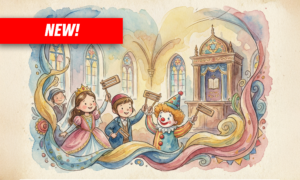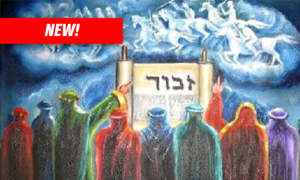(Sicha, Second day of Shavuos, 5725)
The Two Parts of the Tablets
Initially, G-d uttered all the Ten Commandments in one simultaneous utterance, and afterward they were repeated one-by-one (Source 1). The lesson for us: The Ten Commandments contain both interpersonal and religious imperatives. They were all said as one to stress that they are all one, and the interpersonal imperatives are included in G-d’s word.
The necessity of this became clear in Nazi Germany, when an advanced, intellectual nation that followed manmade morals became so morally depraved that they considered it ethical and just to commit genocide against the Jews. How could such a thing happen? Abraham explained it already when Sarah was taken to Avimelech’s palace: “There is no fear of G-d here and they will kill me.” (Source 2). When society does not fear G-d, then can stoop to the most depraved levels.
Why Are Judaism and Ethics Interrelated?
In a discussion between college students and the Rebbe, the students asked about the connection between social ethics and religious imperatives. The Rebbe stressed that they go hand-in-hand, and the absence of either will eventually degrade the existence of the other.
Ethics of the Fathers—a compilation of moral and ethical teachings of the Sages—begins with a description of the transmission of the Torah from G-d to Moses, until this very day (Source 3), to emphasize that ethical norms can only be perpetuated when based on G-dly dictates given to Moses at Sinai.
A Light Unto the Nations
This connection between morals and G-dly dictates is not relevant for Jews alone, but for the nations as well. They are enjoined to observe the Seven Laws of Noah, which is primarily an ethical code (Source 4). In order for one to overcome their ego and selflessly give to others—and continue acting that way in the long-term—a moral code must be based on the existence of a Creator, and fulfilling His will.
Harmonizing Ideals
The Ten Commandments include deep spiritual directives, including belief in G-d, alongside simple commands such as “Do not murder.” Combining them into one set of Tablets expresses the connection between the spiritual world and the material world. This connection began at Sinai upon the giving of the Torah (Source 5).
When we fulfill the ethical interpersonal mitzvot with the recognition of G-d’s command, we actualize the connection between the lower worlds and the higher worlds, and vice versa. The connection between the spiritual commandments and the more obvious social commandments teaches us that even one who needs to be told not to kill must still study Torah and strengthen their belief in G-d; a connection between the higher worlds and the lower worlds.






